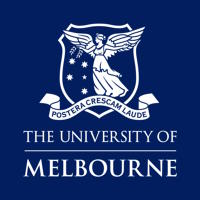The IDEAcology interface supports the expert data collation and summary, and the expert interactions and feedback essential is a structured expert elicitation using the IDEA protocol. A central portal for scientists and practitioners to easily implement structured expert elicitation projects. IDEAcology aids data management by providing a reliable and efficient way for analysts to design and undertake an elicitation, and for experts to provide, visualise and cross-examine estimates.
For more information read: IDEAcology: An interface to streamline and facilitate efficient, rigorous expert elicitation in ecology
IDEAcology is an easy-to-use interface with synchronous access to a single platform, reducing the logistic difficulties, facilitating transparent discussion, and enabling fast and efficient reporting by providing analysis ready data outputs
To support decision making in conservation and management, we have engineered flexibility in the type and format of the questions. This helps accommodate a wide range of ecological questions that can support and inform management decisions
The IDEA protocol and IDEAcology were designed to support elicitation of quantitative and probabilistic estimates. To do this, IDEAcology provides an analysis-ready data output in .csv format, ready for access and use within (probabilistic and statistical) modelling packages that perform mathematical aggregation and integration of expert elicited data within complex probabilistic models.
IDEAcology works across multiple platforms (Windows and Mac compatible) and browsers, and is designed to be compatible with as many different devices as possible including computers, laptops and handheld devices (tablets and smartphones). The interface is cloud-based, removing any infrastructure requirements and ensuring ready availability, given internet connectivity.
All data collected can be securely stored in a cloud-based database to ensure data integrity and reliability. IDEAcology is a cloud-based solution and consists of a web based front end with a database backend (often referred to as a two-tier architecture). All data within the system is stored in the backend database. The database follows industry standard methodologies to ensure security and confidentiality of the data and is GDPR compliant.
Desiderata for a structured process include clarity (asking questions that have clear operational meanings), transparency (following a traceable, repeatable, and open to review set of steps); neutrality (allowing experts to state their true judgements, i.e. the process anticipates and mitigates some of the most important psychological and motivational biases), empirical control (provides opportunities for empirical evaluation and validation) and accountability (the sources of expert judgements should be identified to the stakeholders under the Chatham House Rule).
If you are interested in registering so you can run your own elicitations, please send us a message using this form.
The IDEAcology team is primarily based at the Australian National University and the University of Melbourne with other members based all over the globe. Our focus is on developing collaborative tools and methodologies to help scientists gather and aggregate data.



contact@ideacology.com